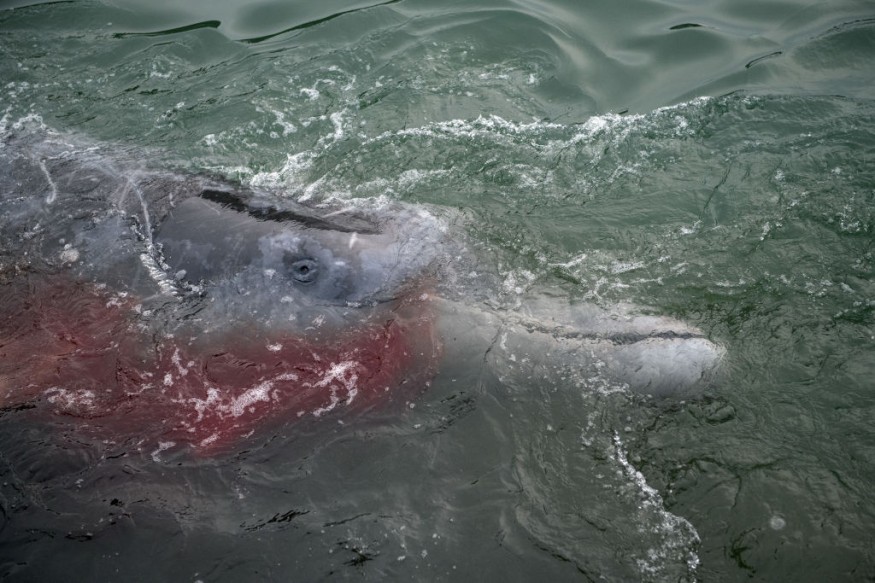A dead beaked whale washes up on a California beach recently, and experts are not certain which species the dolphin-like whale carcass belongs to.
The corpse belonged to a rarely seen type of beaked whale species, which are members of the family Ziphiidae.
The incident added to the growing number of dolphin and whale strandings worldwide.
While related cases have been attributed to vessel strikes or storms, the case of the dead cetacean on the California beach is considered to be unique since scientists are also clueless about how the marine animal died or what caused its wounds.
Mysterious Dead Beaked Whale

Reports regarding the mysterious dead beaked whale emerged after it was first found by a passerby along the Mendocino Coast at Jug Handle State Natural Reserve near the city of Fort Bragg, California, on May 15.
Members of the nearby Noyo Center for Marine Science (Noyo Center) recovered the marine mammal's body with the help of scientists from the California Academy of Sciences (CAS) in San Francisco, California.
For further analysis, both institutions collected the beaked whale's vascularized adipose tissue called "blubber," as well as its various organs and its skull to the National Marine Mammal Tissue Bank in Charleston, South Carolina.
Whale Group and Species
According to a Facebook post of the Noyo Center on May 17, the 16-foot-long marine creature has been identified as a rarely seen beaked whale, which is a group of cetacean species like dolphins, porpoises, and other types of whales.
The organization also underscored the ability of beak whales to live in "deep water environments" and dive diver than any known marine mammals, making them difficult to study.
Since the known family of the stranded beaked whale is known already, scientists have reportedly speculated that the massive sea creature may relate to two dozen species of Ziphiidae, which include Cuvier's beaked whale (Ziphius cavirostris) and Baird's beaked whale (Berardius bairdii).
However, the washed-up carcass on the California beach may belong to other known beaked whale species like a Hubb's beaked whale (Mesoplodon carihubbsi) or Stejneger's beaked whale (Mesopodon stejnegeri), according to Moe Flannery, a CAS senior collections manager, who told local news agency SFGate.
In addition, the mysterious animal can also be a ginkgo-toothed beaked whale (Mesoplodon ginkgodens) or a pygmy beaked whale (Mesoplodon peruvianus), according to Sascha Hooker, a marine mammal biologist from the University of St. Andrews in Scotland, in an email, sent to Live Science.
Vessel Strike
The ambiguity regarding the taxonomic identity of the stranded whale or other marine animals is common in some cases, especially if their morphological features are similar to other species.
Going back to the washed-up specimen at the Mendocino Coast, scientists reportedly associate the mysterious wounds on the face and scrape marks on its body from a ship strike or vessel strike.
According to the National Oceanic and Atmospheric Administration Fisheries (NOAA Fisheries), vessel strikes have injured 37 whales along the Atlantic coast of the United States, Canada, and the Gulf of Mexico along the Atlantic coast between 2010 and 2014.
Meanwhile, similar incidents also do occur in other parts of the world, especially where maritime activities are high.
Related Article : NOAA: 41 Humpback Whales Mysteriously Die Along the Atlantic Coast
© 2025 NatureWorldNews.com All rights reserved. Do not reproduce without permission.





